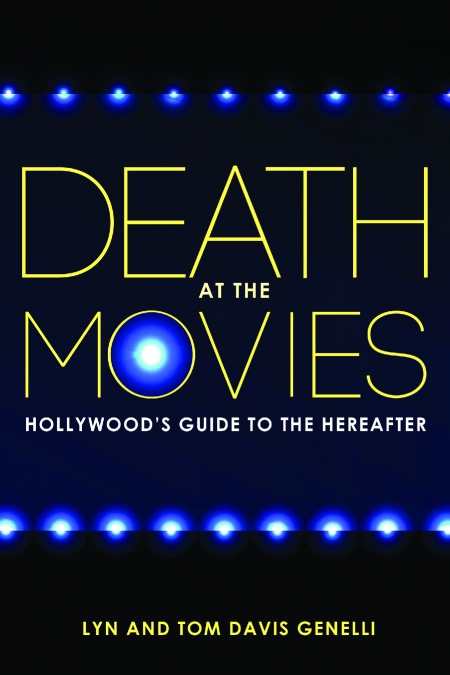Death at the Movies
Hollywood and the Hereafter
- 2013 INDIES Finalist
- Finalist, Popular Culture (Adult Nonfiction)
How Hollywood handles death and the afterlife “excavate the deep and sometimes dark content of our minds.”
A spiritual tone overlays these authors’ deconstruction of popular movies’ commentary on death and the afterlife.
Heaven and Hollywood do mix—that is the theme of former ABC film librarian Tom Davis Genelli and wife, Lyn’s, Death at the Movies: Hollywood and the Hereafter. While it reads like a series of columns in a highbrow cinema magazine, the Genellis’ work, like most of the more than sixty movies they mention, is both thoughtful and entertaining.
Tom and Lyn Genelli focus their attention on nineteen films—most of which are given their own chapter. More than half of the films are from the golden age of cinema (1930s and 1940s). A good number are from the late ’70s, ’80s, and ’90s, and four are from this century. Some of the films are acknowledged classics and masterpieces (The Wizard of Oz, It’s a Wonderful Life, Casablanca), others were popular hits (Ghost, Groundhog Day, Poltergeist, The Sixth Sense), and a few are arguably a bit more obscure (Jacob’s Ladder, Resurrection).
The writing is light and crisp, often humorous with little comic asides about an actor, character, or plot arc, and each of the nineteen chapters could stand on its own as an article in a magazine. The Genellis make a serious point about how Hollywood has tried to answer humanity’s questions about not only what comes next but also about the transit between this world and the next.
Other films may not at first or twelfth look appear to have anything at all to do with this subject (Casablanca), but the Genellis have taken a few of those apart to show how even broad comedies (Groundhog Day) can be seen to carry a message. Who would have believed that Bill Murray’s jaded weatherman in the latter was on a spiritual journey, or that Puxatawney Phil was his “transit guide” as the Genellis opine?
“Movies,” note the authors, “like classic Greek tragedies, often serve as tools to excavate the deep and sometimes dark content of our minds.” Nowhere is this truer, say the Genellis, than in films that deal with the hereafter.
There is a spiritual tone to their work, partially Judeo-Christian in nature but mostly in the Buddhist bardo and Bodhisattava way, but in neither case do the Genellis preach. They merely point out these themes and how they are woven into the stories of classic movies, some of which directly address the theme of life after death, and others which do so in a more comedic or less obvious manner. As the authors rather charmingly put it, after reading their book, filmgoers will “never view Casablanca or the Wizard of Oz the same way again.”
Reviewed by
Mark McLaughlin
Disclosure: This article is not an endorsement, but a review. The publisher of this book provided free copies of the book to have their book reviewed by a professional reviewer. No fee was paid by the publisher for this review. Foreword Reviews only recommends books that we love. Foreword Magazine, Inc. is disclosing this in accordance with the Federal Trade Commission’s 16 CFR, Part 255.

